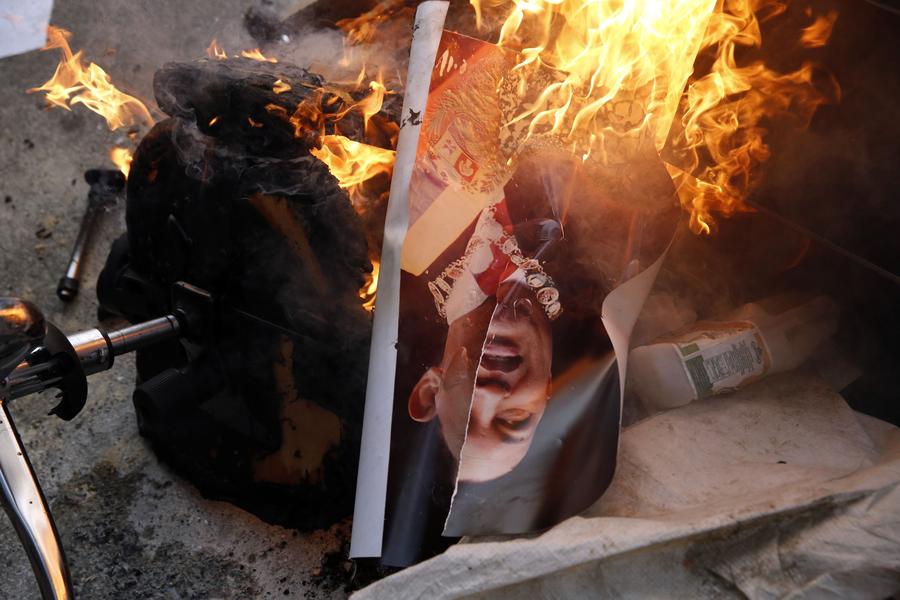In the national capital of Caracas, pro- and anti-government student groups approaching 10,000 people staged competing marches. When the larger opposition group tried to move toward the chief public defender's office to demand his resignation, security forces blocked the way. After negotiations failed to break the impasse, some protesters hurled rocks and National Guard troops responded with water cannons and tear gas.
 |
| A poster of the late Venezuelan President Hugo Chavez burns during a protest in Caracas March 12, 2014. Supporters and foes of Venezuelan President Nicolas Maduro took to the streets of Caracas again on Wednesday a month after similar rival rallies brought the first bloodshed in a wave of unrest round the OPEC member nation.[Photo/Agencies] |
Jorge Olivares, a 21-year-old chemical engineering student at Simon Bolivar University who joined the anti-government march, said the protests would not push Maduro from office, but expressed hope that the general discontent would guarantee a win for the opposition in the next election.
He also said security forces seemed to be getting tougher in dealing with the daily protests.
"Something has changed,'' Olivares said. "Each time there's more repression.''
In Washington, US Secretary of State John Kerry left open the possibility of sanctions, but said there was concern that in Venezuela's fragile economic state that sanctions might not be appropriate.
He said Maduro's frequent accusations that the US is participating in a conspiracy against his government have made it difficult for the US to influence the situation.
"We have become an excuse, we are a card they play,'' Kerry said. "I regret that because we pretty much opened up and reached out in an effort to say, `It doesn't have to be this way.'''
The UNASUR group of South American nations said Wednesday that it will send a commission of foreign ministers to Venezuela in April to encourage dialogue on resolving the political conflict. The Venezuelan political opposition and student leaders have refused to speak with the government until it releases jailed protesters.
